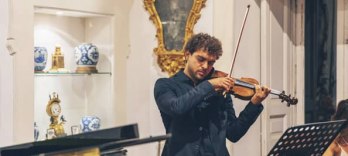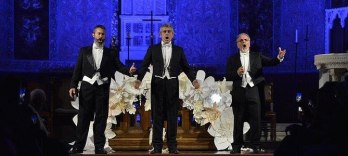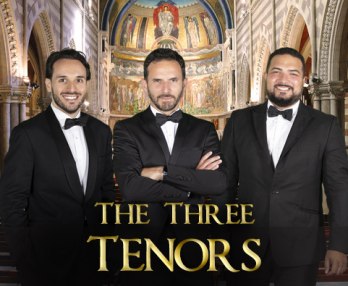Rome Opera Tickets | Italy opera and ballet tickets | Rome Events Booking
What's on
Chamber Opera of Rome
Rome - Waldensian Church
Sa 20 Apr 2024, 19:30 - Fr 30 Aug 2024, 19:30
Sa 20 Apr 2024, 19:30 - Fr 30 Aug 2024, 19:30
Palazzo Santa Chiara
Rome - Santa Chiara Palace
Sa 20 Apr 2024, 19:30 - We 26 Feb 2025, 19:30
Sa 20 Apr 2024, 19:30 - We 26 Feb 2025, 19:30
Opera e lirica
Rome - Correale Museum of Terranova
Sa 20 Apr 2024, 21:00 - Fr 01 Oct 32024, 21:00
Sa 20 Apr 2024, 21:00 - Fr 01 Oct 32024, 21:00
Opera in Roma -
Rome - St. Paul’s within the Walls Church
Sa 20 Apr 2024, 20:30 - Sa 21 Dec 2024, 20:30
Sa 20 Apr 2024, 20:30 - Sa 21 Dec 2024, 20:30
Roma Opera Omnia
Rome - Palazzo Doria Pamphilj
Sa 20 Apr 2024, 18:00 - 19:15 - Sa 28 Dec 2024, 18:00 - 19:15
Sa 20 Apr 2024, 18:00 - 19:15 - Sa 28 Dec 2024, 18:00 - 19:15
Auditorium Parco della Musica
Rome - Auditorium Parco della Musica
Sa 20 Apr 2024, 18:00 - Sa 20 Apr 2024, 18:00
Sa 20 Apr 2024, 18:00 - Sa 20 Apr 2024, 18:00
Bestseller events
Latest news
Due to the measures taken by the federal government against the spread of the Corona Virus, all events at opera houses, theaters, etc. have been cancelled until the 03-04-2020. Customers who have purc...

 EN
EN DE
DE IT
IT FR
FR ES
ES RU
RU JP
JP RO
RO









